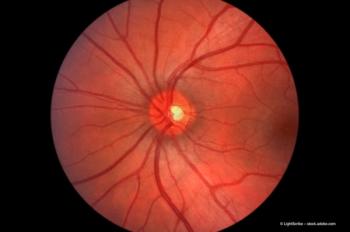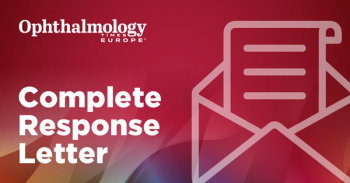
5-year followup data for study on combining anterior and posterior segment surgery
Dr Timothy G. Murray discusses the 5-year followup data from a large, consecutive case series of combined anterior and posterior segment surgery and the benefits of a single procedure for the recovery of vision and decreased risk.
Dr Timothy G. Murray discusses his talk at ASRS entitled, “Combined MIVS/Phacoemulsification for Concomitant Management of Retinal Pathology With Cataract: 5-Year Followup of a Large, Consecutive Case Series.” The presentation took place on 11 October, 2021.
Dr Murray practices as a retina specialist at Miami Children’s Hospital, Baptist Health System and Jackson Memorial Hospital. He is also the Founding Director/CEO of Ocular Oncology and Retina of Miami Florida (MOOR).
Video transcript
Dr Timothy G. Murray: So it's kind of exciting to be able to speak at ASRS. And one of my big interests has been combining anterior and posterior segment surgery together for our patients, so that they can have surgery, one procedure that allows them the best ability to recover their vision with the least risk. And that was what we presented here, showing five-year followup data on one of the largest series of patients ever to be reported.
It was kind of interesting; patients had really bad vision when they entered because I have a practice that has some complex surgical patients. So about 20/200 vision when they started. And then by three years, the patient's vision had improved to 20/40, which is, which is what we look at as driving vision, and they were able to maintain that through five years. So I think it was very, very exciting to have the long-term followup with this kind of combined surgery for the first time.
I think the problem is in the United States, it's very difficult to combine surgeries that include intersegment cataract surgery with posterior segment vitrectomy. It's interesting that our international colleagues do this routinely. So I think the idea here is as our younger doctors are training and they're outstandingly competent in both these areas, that they're now able to provide that to their patients. And this gives some support for the ability to do that in a very safe way, but also in a very sustainable way for our patients.
The American Society of Retina Specialists (ASRS) hosted its 39th Annual Scientific Meeting from the 8th to the 12th of October, 2021, at the JW Marriott San Antonio Hill Country Resort and Spa in San Antonio, Texas.
According to ASRS, its 2021 scientific programme offered attendees innovations in retina science, clinical practice and surgery with 148 papers, 165 posters, 46 papers on demand, and 69 films, as well as a wide range of networking opportunities and the chance to exchange ideas and perspectives with peers.
Related Content:
Newsletter
Get the essential updates shaping the future of pharma manufacturing and compliance—subscribe today to Pharmaceutical Technology and never miss a breakthrough.




























